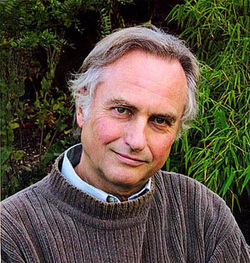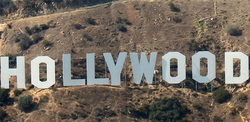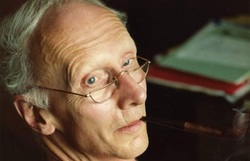
I returned to my computer to discover that I’ve caused a minor storm in the community of politicized Atheists. I had spent the previous day hung-to-the-over, lying in bed moaning, eagerly awaiting the Rapture. When it didn’t happen, I flicked through the dailies to discover predictable joy at the embarrassment of a small group of religious-types. I wrote a piece for the Telegraph bemoaning the demonization of evangelicals. Sincerely, I meant to say this: “Yes, it is foolish to try to predict Armageddon, but these people are but one small segment of evangelical culture – a culture which is diverse, ever-changing, and of tremendous historical importance to America.” I concluded that it was mean-spirited to celebrate other people’s humiliation and that greater tolerance should be shown towards a movement that works tirelessly to improve people’s lives. I received one nice email from a gay evangelist; whose very existence I feel proves my point.
Alas, the article was not taken quite so well elsewhere. Richard Dawkins wrote on his website, “I’m struggling to find a reason why American evangelical Christians deserve even a little respect, and I’m not struggling at all to discover that Tim Stanley merits no respect at all.” Grammar reveals a lot about a person. When it’s strictly speaking accurate but one still struggles to decipher the meaning of what has been said, you know you’re reading a sentence written by an academic.
I am frustrated that Prof. Dawkins has dismissed me so easily and so cantankerously. I will only say that I hope his wife doesn’t share his view, as I’ve long admired her. She played a heroine in my favorite TV program, and wrote books about needlework that obsessed my Baptist mother during her most creative patchwork craze. Ironically, her patterns were replicated on a thousand church cushions that my mother ran through her old Singer while humming “Heavenly Sunlight”. But Prof. Dawkins’ ad hominem attack is nothing compared to this remarkable piece of class warfare. I am, according to someone I’ve never met, “a fancy little boy” (thankyou?) who is destined to be a New York Times op-ed writer (again, thankyou?). The critiques I have received are full of odd paradoxes. One blogger accused me of being “immature”. He has as his profile picture a photo of Harry Potter.
People have taken offense in two prime ways. First, they don’t agree with my reading of history that evangelicalism has shaped American democracy. Actually, that’s a no-brainer. The Puritan influence is up for debate; while some historians see them as inflexible theocrats, others argue that their surface authoritarianism was bound by an inner quest for personal enlightenment that was freely obtained and not coerced. But on the influence of the first and second Great Awakenings, historians are at one in acknowledging that evangelicalism shaped social egality, notions of citizenship, and the party system. [I said that Jonathan Edwards was the “greatest” American theologian. Mea Culpa, that’s my personal prejudice. But it’s not unique]. I would urge those who care to get a copy of Richard Carwardine’s Evangelicals and Politics in Antebellum America (Knoxville: University of Tennessee Press, 1997). It’s the definitive book on the subject and you’ll read how everything from mass participation to female emancipation finds some root in inter-evangelical debate. The positive role played by evangelicalism was felt during the 1960s Civil Rights movement and is still there today in campaigns for prison reform and debt relief. True, some denominations opposed all those things. But my argument was never that evangelicalism was everywhere and always good – just “complex and nuanced”.
Second, some readers have inferred – disingenuously – that I think religious people are charitable but atheists are not. Again, the point of the piece was not to attack atheism as a philosophy but to defend evangelicals as human beings. I do think it is in poor taste for some atheists to celebrate the misery of those who thought they’d be raptured but weren’t. (That said, I’m quite glad I wasn’t. I’m not ready to face my bank manager or my priest, let alone God.)
This second point goes to the heart of a lot of the criticism my piece received: my critics hadn’t actually read it. At least, they read it myopically – picking out a single sentence (or even a couple of words within a sentence) and extrapolating from a handful of syllables that I favor witch burning and table-wrapping. There is an excellent movie due out soon called Patriocracy. It argues that the national conversation about politics has become debased by extremism, of a blanket refusal to even hear another’s argument. I agree. True, I wrote a piece that had an obvious agenda. But it was filled with equivocation and cowardly sub-clauses, things that I always put in my writing because I’m careful not to reduce everything to an idée fixe. Yet the anger of the debate about religion seems to have blinded some people to subtle argument, and the instantaneous nature of blogging means that – rather than sit down and construct a thoughtful letter as in days of yore – they are able to type “Fuck you, you posh twat”, press return, and publish it within seconds.
That’s all fair enough, and I don’t really mind because that’s what I signed up for when I started blogging for the Telegraph – a paper whose very existence drives some hipsters into intensive yoga. But I am disappointed that Prof. Richard Dawkins – a professor of Oxford, no less – is capable of similar yobbery. He is a fellow academic after all, and he probably knows just how highly we prize our “respect”. It is our economic and emotional sustenance, and I would never deny it to anyone as easily as he has refused it to me.


 RSS Feed
RSS Feed